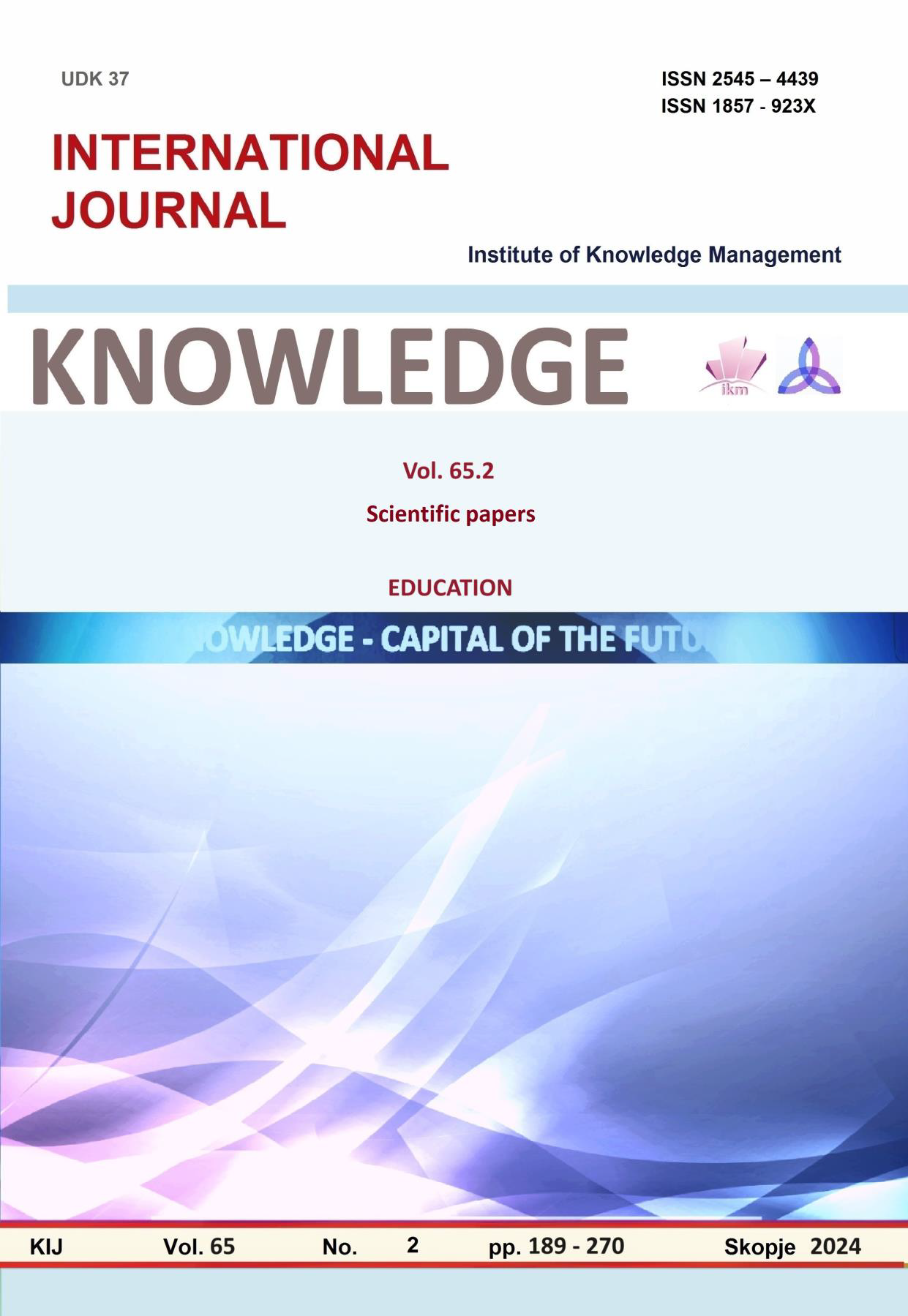ΕΚΠΑΙΔΕΥΤΙΚΗ ΠΟΛΙΤΙΚΗ ΓΙΑ ΤΗΝ ΕΝΤΑΞΗ ΤΩΝ ΜΕΤΑΝΑΣΤΩΝ· Η ΠΕΡΙΠΤΩΣΗ ΤΗΣ ΕΛΛΑΔΑΣ
EDUCATIONAL POLICY FOR THE INTEGRATION OF IMMIGRANTS: THE CASE OF GREECE
Author(s): Chrysoula-Maria GrammenouSubject(s): Social Sciences, Education, Sociology, Migration Studies, Sociology of Education
Published by: Scientific Institute of Management and Knowledge
Keywords: immigrants;Greek education system;integration;intercultural education
Summary/Abstract: The paper delves into the implementation of intercultural education in the Greek educational context, shedding light on the strategies and initiatives adopted to promote cultural diversity and understanding among students. It highlights the establishment of an integrated model of intercultural education in Greece, stressing the importance of integrating different cultural perspectives into the curriculum and educational practices. The implementation of intercultural education programs in Greece faces multifaceted challenges that require careful consideration and strategic planning. An important obstacle is the need to establish effective teaching methods and methods that promote intercultural education in the educational context of the country. The importance of appropriate teaching strategies and activities to promote intercultural understanding and cooperation is emphasized from the outset.Furthermore, the complexity of defining interculturality and adapting the model of intercultural education to fit the specific needs and context of Greece present additional obstacles. This requires a thorough examination of teaching methods and activities, which not only promote but also facilitate intercultural education in the diverse Greek educational landscape. The adoption of multilingualism and multiculturalism, as key tools for the promotion of intercultural education, further intensifies the challenges faced by teachers in Greece. These aspects are vital to fostering a culturally diverse and inclusive educational environment that fosters understanding and respect among students from diverse backgrounds. Furthermore, the central role of school leaders in championing intercultural education through the development of inclusive policies and practices cannot be overlooked. Addressing these challenges requires an integrated approach that incorporates innovative teaching methodologies, embraces diversity, and empowers educational leaders to drive meaningful change in the implementation of intercultural education programs in Greece. By emphasizing these key aspects and implementing strategies that prioritize intercultural education, Greece can further strengthen its education system and cultivate a more culturally aware society.
Journal: Knowledge - International Journal
- Issue Year: 65/2024
- Issue No: 2
- Page Range: 203-208
- Page Count: 6
- Language: Greek, Modern (1453-)

